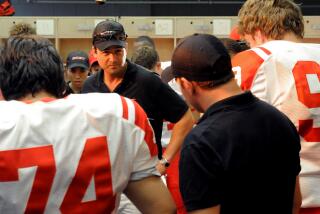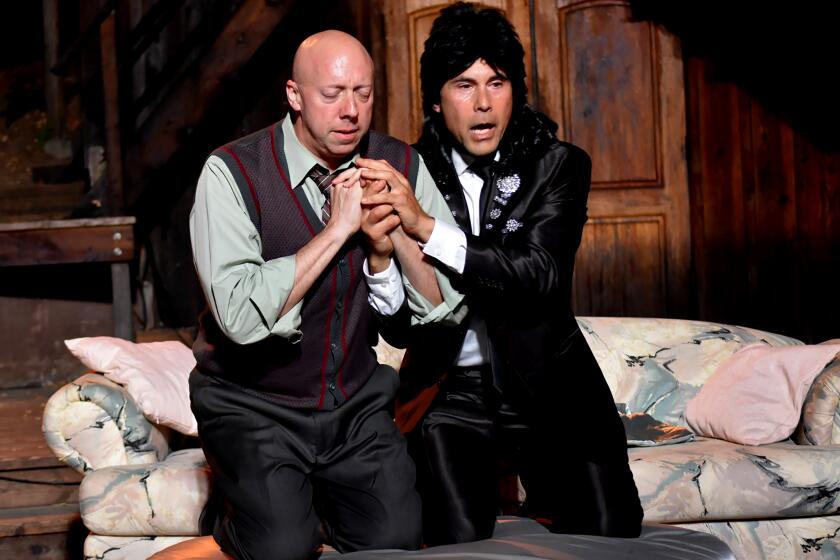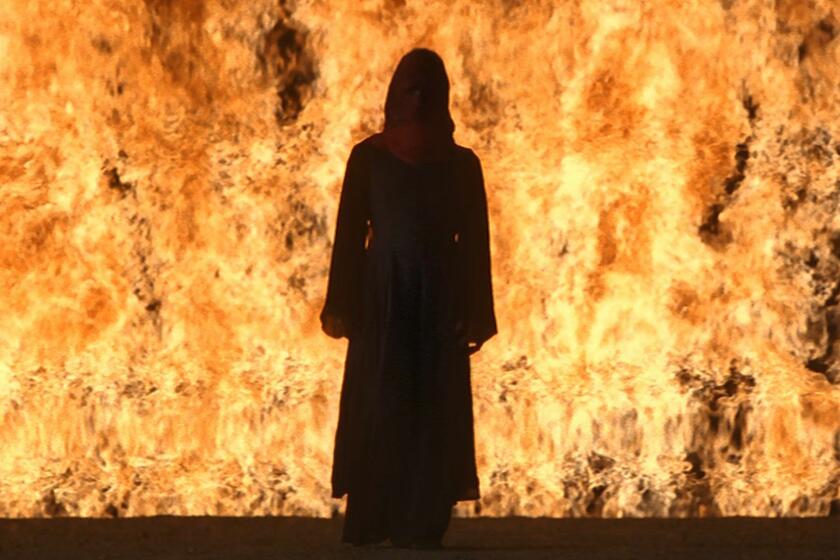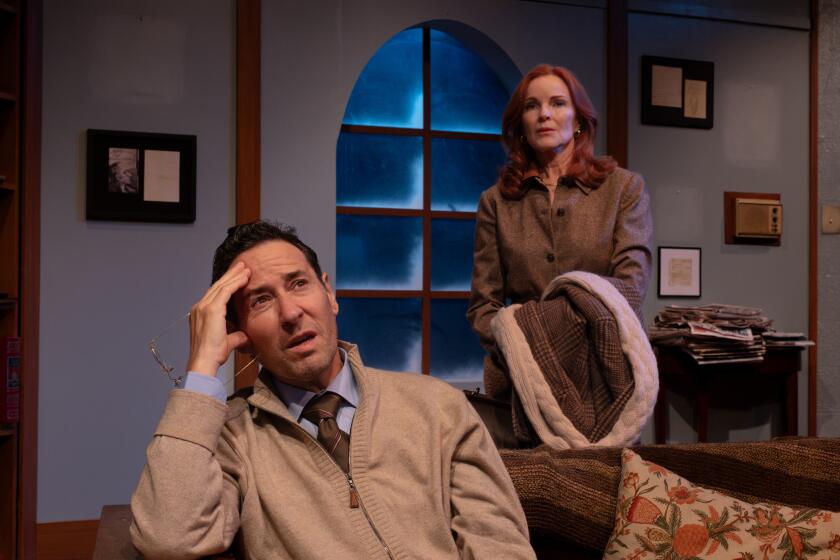Major Orchestras Passing the Batons
Around the music world, it’s a season of farewells.
Seiji Ozawa is leaving the Boston Symphony Orchestra next spring after more than a quarter-century as its head, Christoph von Dohnanyi is saying goodbye to the Cleveland Orchestra and Kurt Masur to the New York Philharmonic, all part of a gigantic shift in leadership at four of the traditional Big Five orchestras in the United States. Wolfgang Sawallisch departs the Philadelphia Orchestra after the 2002-03 season.
Even in Europe, it’s a season of musical chairs.
Claudio Abbado, who took over the Berlin Philharmonic after Herbert von Karajan’s death in 1989, is leaving what many consider the world’s top orchestra; he will be succeeded by Britain’s Simon Rattle, the shining star of the younger generation. In London, Bernard Haitink is stepping down from the Royal Opera.
“It was a big surprise to me that they all came at once,” said Henry Fogel, president of the Chicago Symphony Orchestra, which alone among the Big Five is holding on to its music director, Daniel Barenboim.
“And there’s a whole bunch of orchestras in the next tier that are changing.”
Hans Graf takes over from Christoph Eschenbach as head of the Houston Symphony. Jesus Lopez-Cobos, music director of the Cincinnati Symphony Orchestra since 1986, gives way in September to Paavo Jarvi, son of Detroit Symphony Orchestra music director Neemi Jarvi--who will miss this season after surgery to repair an aneurysm.
Robert Spano starts his first full season as music director of the Atlanta Symphony Orchestra. And Eiji Oue begins his final season as music director of the Minnesota Orchestra, which isn’t bringing his successor, Osmo Vanska, on board until 2003-04.
The generational change could lead to a shakeup of what listeners hear in concert halls, where Beethoven, Brahms, Mozart, Puccini, Strauss, Verdi and Wagner still dominate, a century or more after their deaths.
“I don’t believe we can roll them out as a display of what we can do constantly,” Rattle said. “It’s our job to create a new core repertoire.”
Fogel agreed that a shift to newer music is to be expected.
“That’s probably always been true,” he said. “Georg Solti’s contemporaries were Bartok and Stravinsky. When we shifted from Solti to Barenboim [in 1991], the repertoire underwent a shift. It’s not that he doesn’t conduct Beethoven, Mozart and Brahms. But he does more of the music of our time than Solti did.
“The younger musicians had a different training. There are different composers they know personally and have had training with and have had an affinity for. That’s one of the things that keeps the art alive.”
In the United States, the biggest goodbye figures to be in Boston. Ozawa, 66 on Saturday, became music director there in 1973 and is the longest-tenured head of any major orchestra in the world. He announced in June 1999 that he would become music director of the Vienna State Opera, which has been without a chief conductor since Abbado left in 1991.
“I love voice, so I thought this is a great opportunity before I die to do opera,” Ozawa said.
The Boston orchestra, which has received mediocre reviews for performances under Ozawa in recent years, is still searching for a successor, with the Metropolitan Opera’s James Levine the front-runner.
Dohnanyi, 72 on Sept. 8, has been music director in Cleveland since 1984. He will hand over a group with a shining reputation to 41-year-old Franz Welser-Most, who takes over in 2002-03. Dohnanyi concludes his Cleveland tenure on May 29 with a concert performance of Wagner’s “Siegfried” with Stig Andersen and Jane Eaglen.
The New York Philharmonic has dubbed the theme of its season “Thank you, Kurt Masur”--strange, given the decision of its board to refuse to extend the contract of Masur, who appeared willing to stay on.
After Riccardo Muti turned down the job as the 74-year-old Masur’s successor, the board of America’s oldest orchestra decided against a generational shift and hired former American child prodigy Loren Maazel, 71.
Sawallisch, 78, took over the Philadelphia Orchestra from Muti in 1993 and will preside over one of the big events of the American season: the orchestra’s move in December from the Academy of Music to the new $255-million Kimmel Center for the Performing Arts. He will be succeeded in 2003-04 by Eschenbach, 61.
The first program at the Kimmel Center includes the world premiere of “Color Wheel” by Aaron Jay Kernis; Beethoven’s Triple Concerto with pianist Emanuel Ax, violinist Itzhak Perlman and cellist Yo-Yo Ma; and the Suite No. 2 of Ravel’s “Daphne et Chloe.”
Haitink, 72, has been the music director at Covent Garden since 1989 and presided over the difficult 21/2-year reconstruction of the Royal Opera. His successor is Antonio Pappano, a 41-year-old American.
In a world of change, Levine remains a constant at the Met, where he debuted in 1971 and has been the leading force since 1973.
More to Read
The biggest entertainment stories
Get our big stories about Hollywood, film, television, music, arts, culture and more right in your inbox as soon as they publish.
You may occasionally receive promotional content from the Los Angeles Times.






